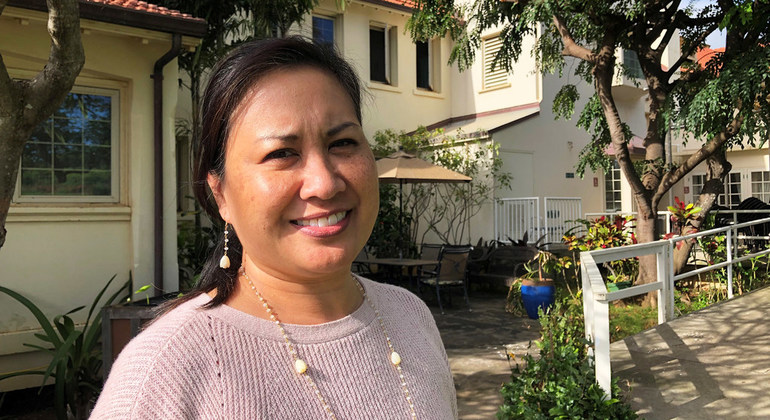Diane Paloma is the CEO of Lunalilo Home and the King William Charles Lunalilo Trust which cares for elderly people in Honolulu, the capital of the US state of Hawaii. Some 80 residents and day-care clients are looked after at Lunalilo, which was established in 1883 following a bequest by King William Charles Lunalilo, the first of a long line of Hawaiian kings to be formally elected by the island’s people.
“I’m like the Jackie of all trades and master of none! I oversee the Trust’s investment portfolio and coordinate with the Board in order to move our strategic plan forward; but my primary focus is nurturing and caring for our kupuna, the Hawaiian word for elder. The knowledge and wisdom of kupuna is highly respected in our culture.
Our founder, King William Charles Lunalilo, recognized his wealth could be utilized for the benefit of others, which was a visionary idea in the 1880s. The reverence for kupuna comes from the philosophy and innate belief that we are a part of this genealogical tie to people in the past. We look to our ancestors for guidance and this gives us a sense of place, and of who we are. They have knowledge and wisdom and so it’s our job to pick up those pearls and utilize them for the betterment of the next generation because in Hawaiian culture, you’re nothing if your lineage doesn’t live on in perpetuity.
Coolest people
I think that’s the unique aspect of how we approach kupuna care; rather than just taking care of their medication, dietary needs as well as bed and shelter and clothes, we consider how to provide comfort, compassion and dignity. And how do we give them respect and recognize they are the coolest persons in the world based on life experiences? Ultimately, the best way is to share in their stories. Really, the carers here become the residents’ surrogate families.
They may not remember what happened yesterday, but they remember an event 60 years ago to the date and can describe to you the smells and what they felt and heard. I’m learning something new every day. I think we need to document while we can what life was like in Hawaii, because if we don’t this knowledge could be lost.
You absolutely need to have the heart for working in this industry of senior and elder care, as it’s neither the most lucrative nor the easiest job; it’s extremely fulfilling but also very challenging. Over ninety per cent of our residents have some form of dementia or Alzheimer’s disease. And as the US populations ages we are faced with what I call a silver tsunami, a tidal wave of baby boomers who have grown old. This situation is really going to challenge our society.
This industry relies on people and I would say there has been a shift in our workforce, as it’s been really difficult to find people who want to do this sort of work. Many would prefer a more lucrative job in a hospital or even in a hotel earning $20-25/hour. Some work here as a stepping-stone to becoming a registered nurse which pays a livable wage in Hawaii and means they can afford to have one job instead of two.
Migrants
Migrants have played a critical role in Hawaii and continue to do so, especially in the health care sector. It’s good to have diversity in the workforce. I’m a product of that migrant workforce; my Japanese ancestors came here four generations ago to work on the sugar cane and then pineapple plantations.




